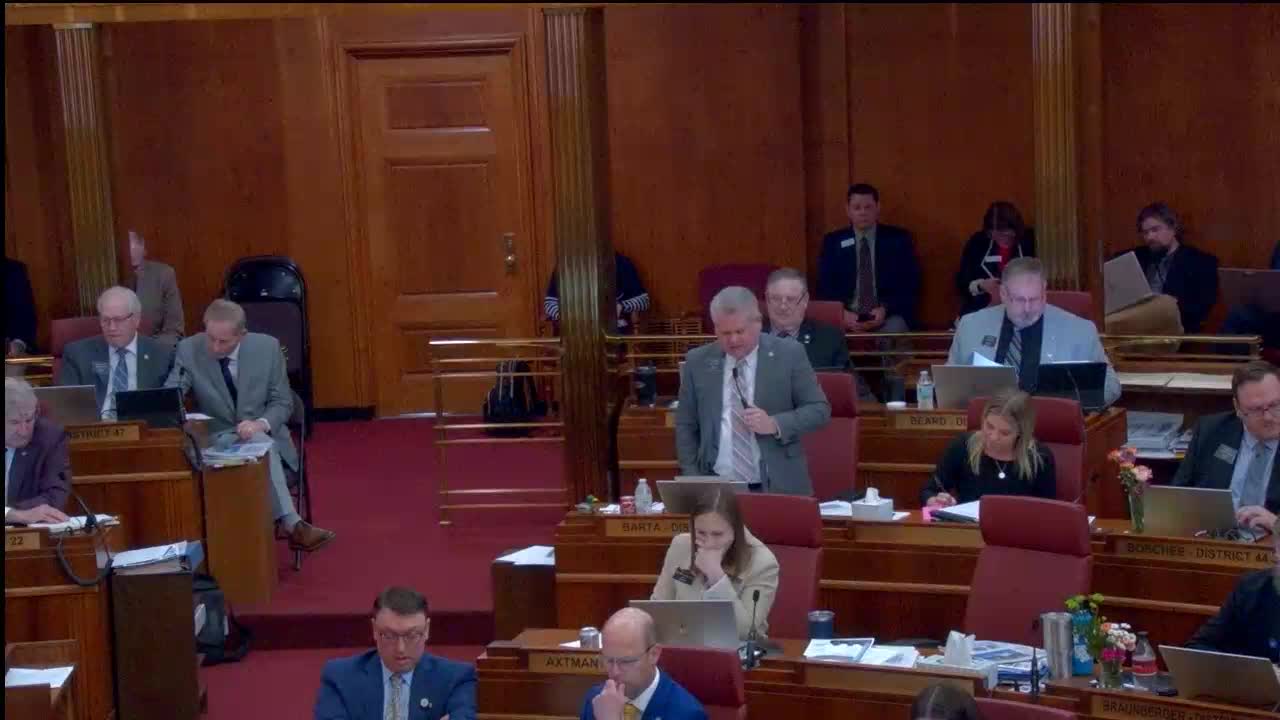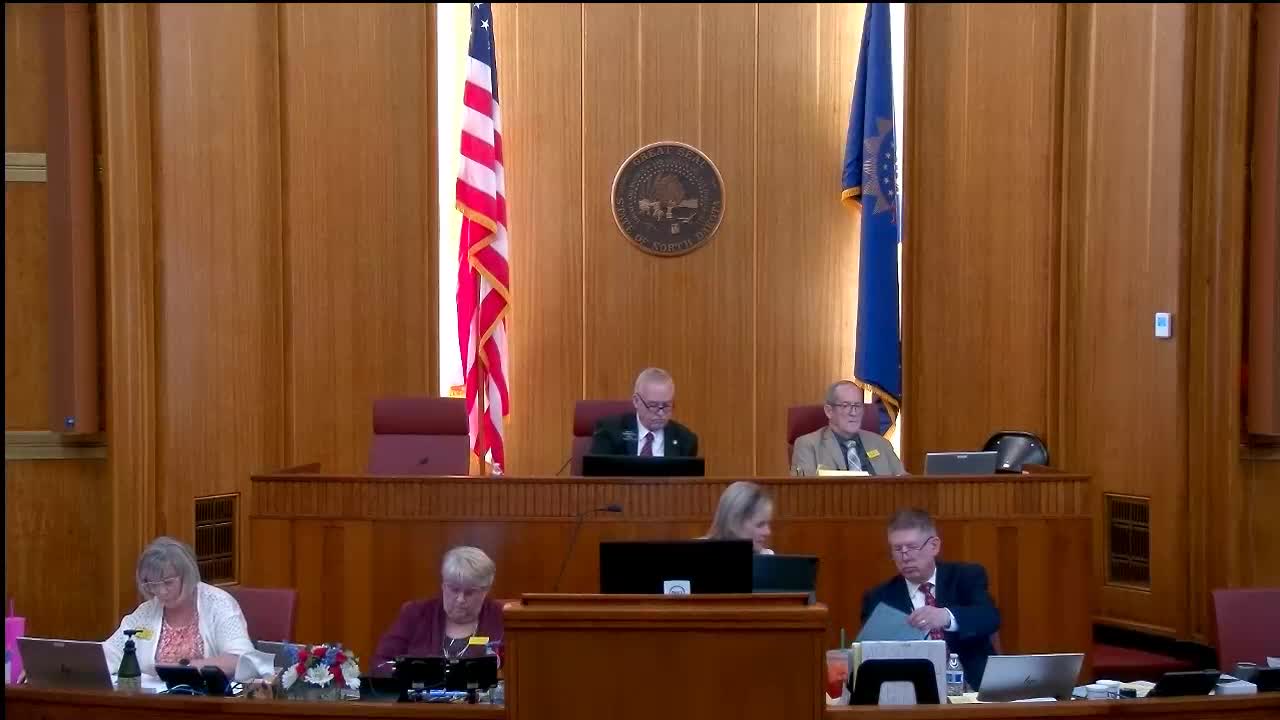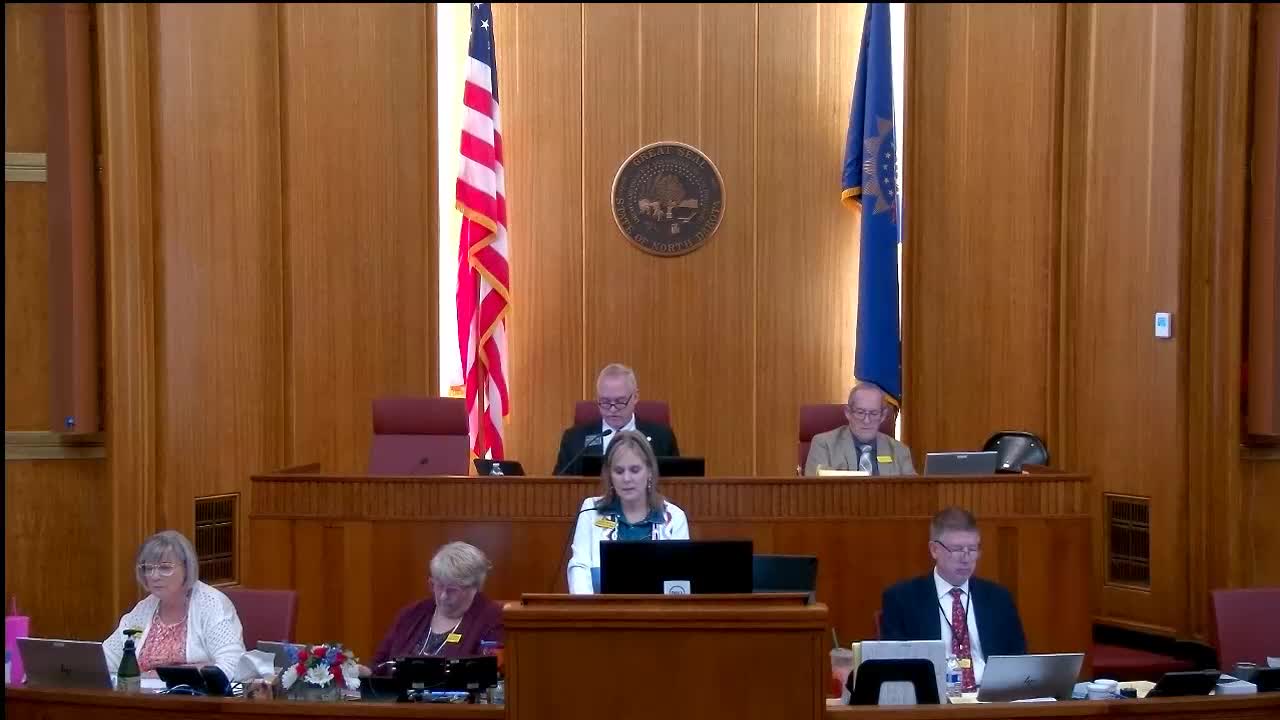Article not found
This article is no longer available. But don't worry—we've gathered other articles that discuss the same topic.

Votes at a glance: key House bills and resolutions acted on by the North Dakota Senate on April 7, 2025

Senate adopts technical and substantive PBM amendments, sends House Bill 15‑84 to appropriations

Senate committee amendment would register kratom products and restrict sales to 21‑plus; chamber concurs

Senate approves limits and disclosures for paid veteran‑benefits helpers; bill aims to curb predatory fees

Senate funds missing and murdered Indigenous people task force, approves Feather Alert, $250,000 appropriation

